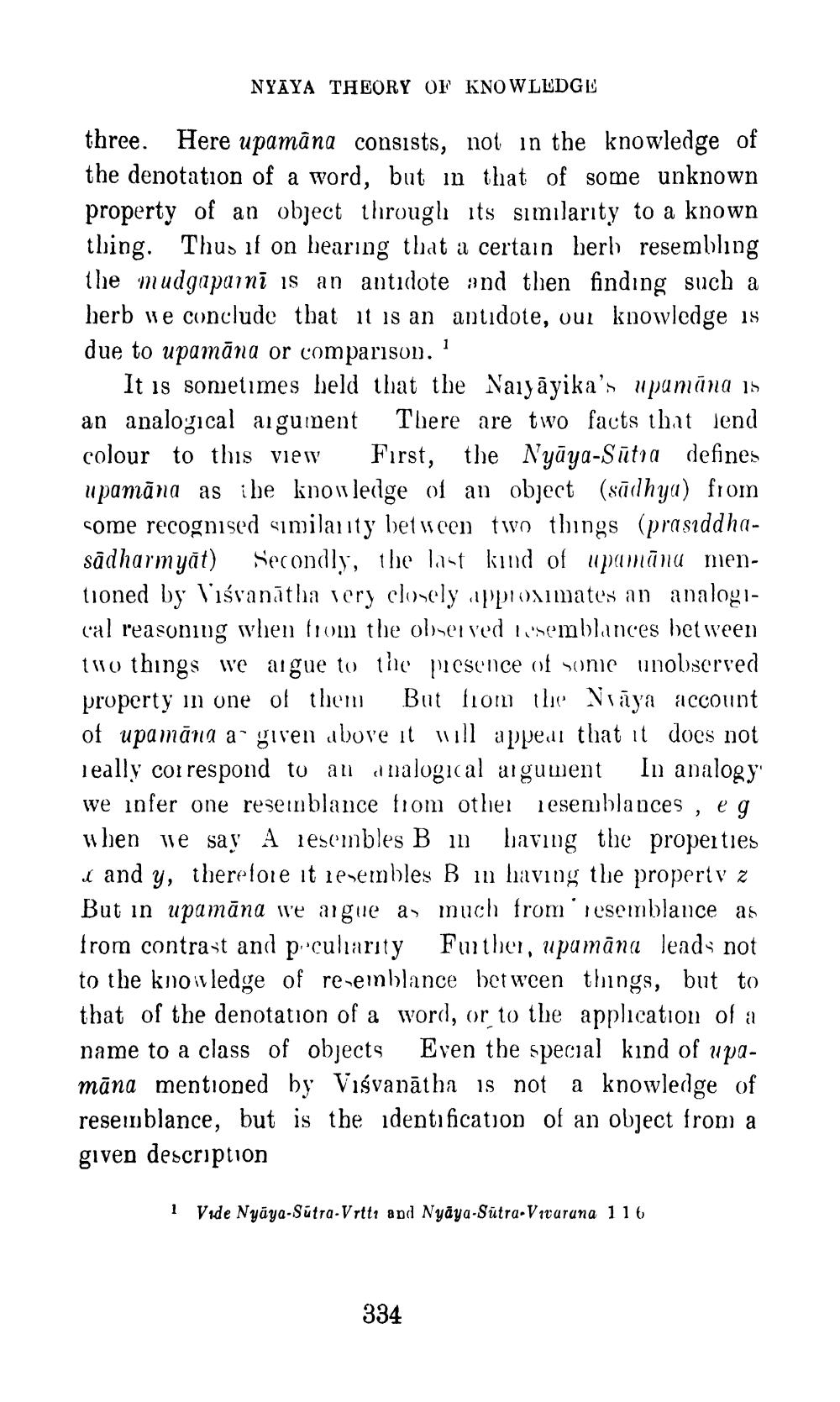________________
NYAYA THEORY OF KNOWLEDGE
three. Here upamāna consists, not in the knowledge of the denotation of a word, but in that of some unknown property of an object through its similarity to a known thing. Thus if on hearing that a certain herb resembling the mudgaparnī is an antidote and then finding such a herb we conclude that it is an antidote, our knowledge is due to upamāna or comparison.'
It is sometimes beld that the Naiyāyika's upamāna is an analogical argument There are two facts that lend colour to this view First, the Nyāya-Sūtra defines upamāna as ibe knowledge of an object (sūdhya) from come recognised similauty between two things (prasıddhasādharmyāt) Secondly, the last kind of upanānu mentioned by Visvanātha very closely approximates an analogical reasonmg when from the observed assemblances between tll things we argue to the presence of some unobserved property in one of them. But from the Nāya account of upamāna a given above it wll appear that it does not Teally cor respond to an analogical argument In analogy we infer one resemblance from other esemblances, eg when we say A resembles B in having the properties I and y, therefore it resembles B in having the property z But in upamāna ne argue as much from resemblance as from contrast and p.cuharity Further, upamāna leads not to the knowledge of re-emblance between things, but to that of the denotation of a word, or to the application of a name to a class of objects Even the special kind of upamāna mentioned by Visvanātha is not a knowledge of reseinblance, but is the identification of an object from a given description
1 Vide Nyāya-Sutra-Vrtti and Nyaya-Sutra-Vivaruna 116
334




